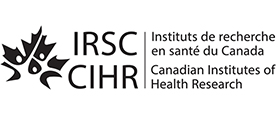
-
Careers • News • Contact us •
- Login
- Français
Creating new
knowledge
Exploring new avenues to develop tomorrow’s medical knowledge through an approach that integrates basic and clinical research
Our research units are led by principal investigators who collaborate in a spirit of collegiality and with the vision of bridging the gap between research and patients. They train the next generation of scientists and are independent and creative minds who work tirelessly to improve health.
Current research
"We are trying to find new ways to control immune cells to fight against infection and cancer."
Woong-Kyung Suh, research director
Immune Regulation
T cells play a central role in shaping the adaptive immune system. Against non-self antigens with pathogenic threat, T cells should develop immunity. On the other hand, T cells are supposed to become tolerant to self antigens or innocuous environmental antigens. Many immunological disorders such as immunodeficiency, autoimmune diseases, and allergies are caused by T cells that fail to obey the above rules.
Members of the CD28 family cosignaling receptors and their ligands (members of B7 family) are known to play crucial roles in T cell immunity and tolerance. The Immune Regulation Research Unit's team is investigating the molecular and cellular mechanisms of CD28-B7 family of T cell cosignaling molecules using a panel of knockout, knockin, and transgenic mice. Impacts of altered T cell cosignaling are analyzed at the biochemical and cellular levels using immune cells isolated from the mice. The consequences of altered cosignaling in overall immune reactions in mice are examined in the context of infection, cancer, and autoimmunity.
| Team |
|
| Affiliations |
|
| Degrees and experience |
|
Mapping the signalling pathways controlling germinal center T cells
Germinal center is formed within the immune organs (e.g., tonsil) during infection to recruit immune cells to generate antibodies to fight against pathogens. A group of immune cells termed « Tfh cells » promote germinal center; yet another group of immune cells termed « Tfr cells » suppress this process. Thus, the balance between Tfh and Tfr cells is critical to maintain a healthy immune system that protects us from infection and cancer. In fact, many human diseases arise due to genetic defects affecting Tfh or Tfr cells.
In order to find better ways to treat immunological diseases, we generated animal models mimicking human diseases caused by altered Tfh or Tfr cells. Through flow cytometry, imaging, biochemistry, and single-cell transcriptome analysis, we are mapping molecular pathways that control Tfh and Tfr cells.

Important Discoveries
Tools
| Press review |
| Press review |
| Grants |
Canadian Institutes of Health Research (CIHR), 2024/04-2029/03, $189,720/yr. Cancer Research Society (CRS), 2022/09-2024/08, $60,000/yr. Canadian Institutes of Health Research (CIHR) (PJT159526), 2018/10-2023/09, $179,010/yr. Cancer Research Society (CRS), 2020/09-2022/08, $60,000/yr. |
| Recognitions and honors |
|
Join the
group Research
Available positions
Ongoing clinical studies
Research Partners



Life in the
laboratory

© Montreal Clinical Research Institute, Année.All rights reserves. | Privacy policy | Terms of use | Web site by Agence Riposte


.jpg)
